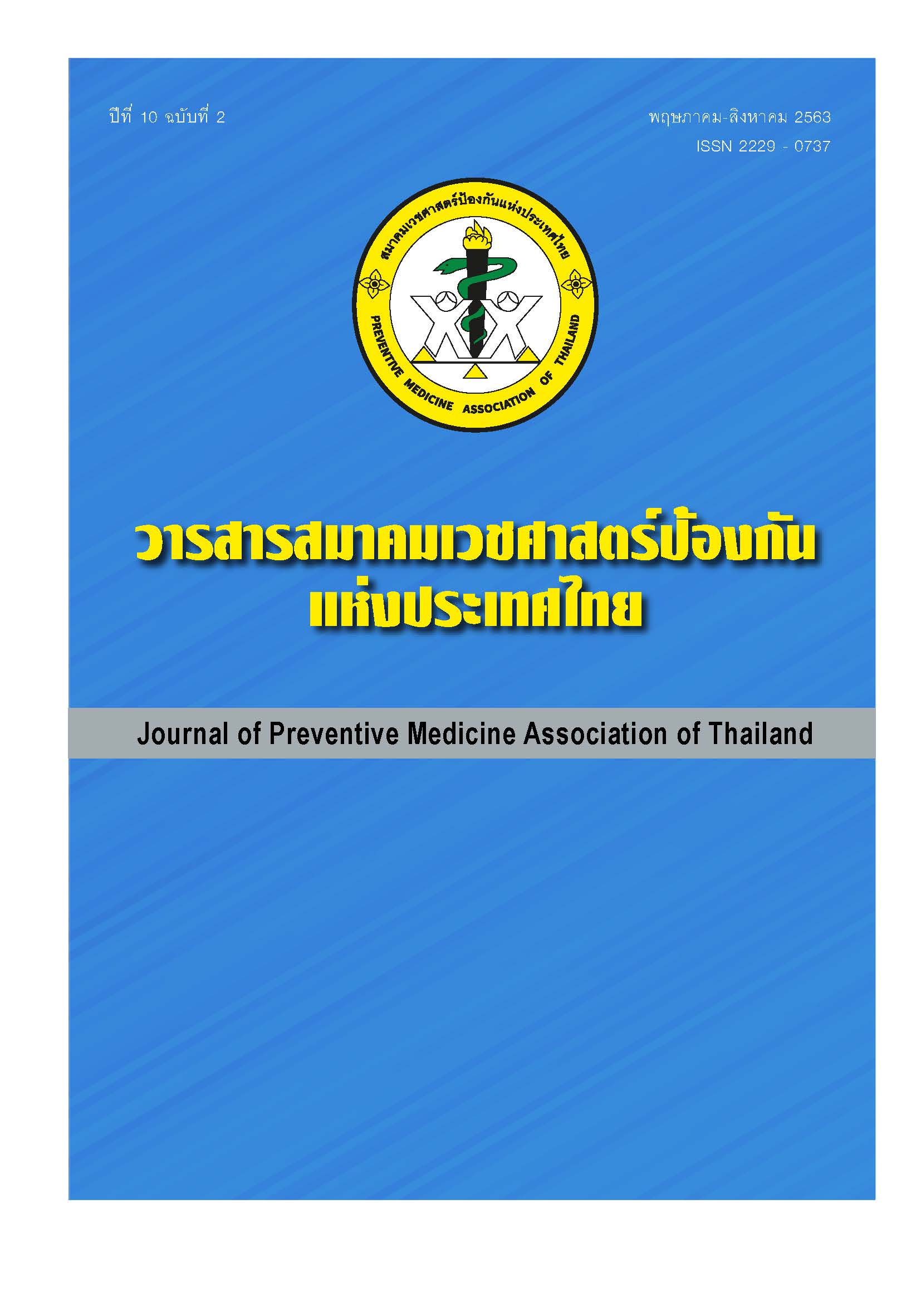Strategy and Direction for elderly care in Bangkok
Keywords:
Elderly care, Bangkok, PolicyAbstract
Due to the fertility of Thai people is decreasing respectively, Thailand especially Bangkok is stepped into an aging society. Therefore, it is necessary to study the strategies and appropriate methods to solve the problems of the elderly in Bangkok. The study is by seminar to search for strategies, in-depth interviews with executives and experts from related departments is applied. The study found that among 5,666,264 people in Bangkok in 2020, there are 1,121,698 elderly (19.80%). By 2025, the proportion of elderly will be increased to 20% of the population, which is a complete aging society. It was found that 95.06% of the population can take care themselves (social group), 2.66% can sometimes take care themselves (home group), 2.28% can’t take care themselves (bedside group). This study has proposed 5 strategies: 1 Prepare all age groups for quality of life of elderly, 2 Promotion and development of the elderly, 3 Protection system for the elderly, 4 Integrated management for elderly development project, 5 Research promotion and development of information technology systems, innovations, evaluation and monitoring system. The study has proposed the model of care for the elderly in 3 aspects. Firstly, care for social group which includes elderly club in the community and setting up the Bangkok Elderly Happiness Center. Activities in the center include: 1 Physical health (body movement) in order to promote health to be physically strong, active, agile, and strength, 2 Bliss / Emotional (psychological) to encourage understanding of life, feelings of one's own heart, accept things as they happen, do not hold on to too much, 3 Social happiness to promote pride for oneself, to see self-worth, self-esteem, sympathize with others, 4 Intellectual happiness to promote memory, intelligence, reasoning. Secondly is care for the elderly of home group, which can be classified into 2 groups. They are 1 Can move and may have problems of eating or excretion, but without confusing of brain, 2 with brain confusing conditions. This group requires a home care service agency. Thirdly is care for the bedside group. This group need register and organize a system for Home Ward. The caring should be carry out by care giver who has been trained 70 hours. To solve the increasing elderly problems.
References
2. กรมอนามัย กระทรวงสาธารณสุข. สมุดบันทึกสุขภาพผู้สูงอายุ. พิมพ์ครั้งที่ 4. นนทบุรี: กรมอนามัย; 2557.
3. เขษม์ชัย เสือวรรณศรี. การเสวนาความรู้เพื่อสุขภาพเรื่อง “สมองใส ห่างไกลโรค” [อินเทอร์เน็ต] ม.ป.ป. [เข้าถึงเมื่อ 15 ก.ค.2563]. เข้าถึงได้จาก:https://www.bumrungrad.com/healthspot/september-2012/dementiaalzheimersymptoms.
4. มูลนิธิสถาบันวิจัยและพัฒนาผู้สูงอายุไทย. สถานการณ์ผู้สูงอายุไทย พ.ศ.2556. กรุงเทพฯ:มูลนิธิสถาบันวิจัยและพัฒนาผู้สูงอายุไทย; 2556.
5. ชุดาภรณ์ ศิริสนธิ, ม.ล.สมจินดา ชมพูนุท, วรรณเพ็ญ อินทร์แก้ว, วรนุช เนตรพิศาลวนิช, กรรภิรมย์ นวพันธุ์, จิรานันท์ ติณสุวรรณ และคณะ. คู่มือการดูแลผู้สูงอายุกลุ่มติดบ้านสำหรับผู้ดูแล. กรุงเทพฯ: สำนักอนามัย กรุงเทพมหานคร; 2557.
6. วรเวศม์ สุวรรณระดา, ดําริ เฉลิมวงศ์, วิลาวัลย์ ดําจุติ, สุภาภรณ์ คําเรืองฤทธิ์, จริยภัทร บุญมา, ณัฐพงษ์ พบสมัย และคณะ. โครงการวิจัยระบบการดูแลระยะยาวเพื่อเสริมสร้างความมั่นคงเพื่อวัยสูงอายุ. กรุงเทพฯ: จุฬาลงกรณ์มหาวิทยาลัยและกระทรวงการพัฒนาสังคมและความมั่นคงของมนุษย์; 2553.
7. สำนักงานหลักประกันสุขภาพแห่งชาติ. แผนยุทธศาสตร์การดำเนินงานระบบการดูแลระยะยาวสำหรับผู้สูงอายุที่อยู่ในภาวะพึ่งพิง พ.ศ.2557-2561 [อินเทอร์เน็ต] ม.ป.ป. [เข้าถึงเมื่อ 15 ก.ค.2563]. เข้าถึงได้จาก:http://shi.or.th/upload/Download
8. สถาบันเวชศาสตร์ผู้สูงอายุ กรมการแพทย์ กระทรวงสาธารณสุข. แนวทางเวชปฏิบัติการจัด กิจกรรม ทางกาย (Physical Activity) สำหรับผู้สูงอายุกับโรคหัวใจ. กรุงเทพฯ: สถาบันเวชศาสตร์ผู้สูงอายุ; 2549.
Downloads
Published
How to Cite
Issue
Section
License
บทความที่ลงพิมพ์ในวารสารเวชศาสตร์ป้องกันแห่งประเทศไทย ถือเป็นผลงานวิชาการ งานวิจัย วิเคราะห์ วิจารณ์ เป็นความเห็นส่วนตัวของผู้นิพนธ์ กองบรรณาธิการไม่จำเป็นต้องเห็นด้วยเสมอไปและผู้นิพนธ์จะต้องรับผิดชอบต่อบทความของตนเอง






